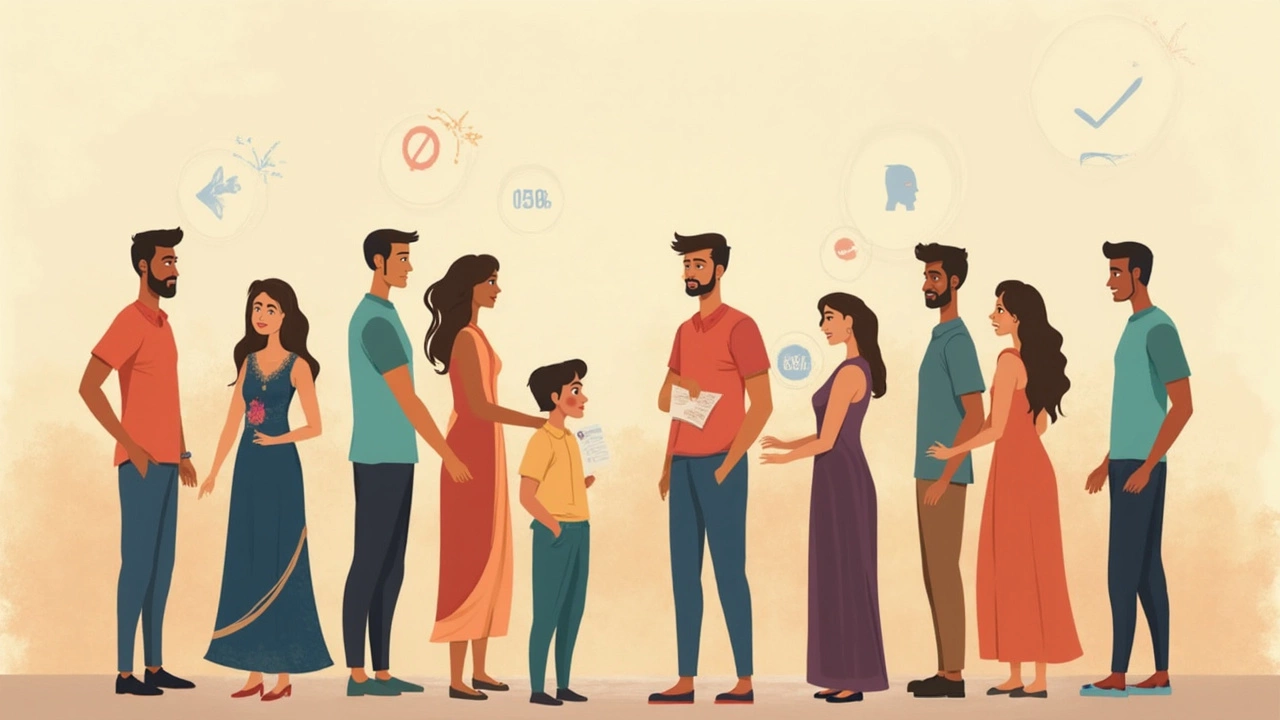Eight out of every ten times, it's the wife who marches into a lawyer’s office and starts the divorce ball rolling. That stat shocks a lot of people, but it’s not some rumor or urban legend. According to research—a pretty famous Stanford University study included—about 70% of divorces in the U.S. are filed by women. If you narrow it down to college-educated couples, the number hits nearly 90%. Wild, right?
But why is this the case? Is the family court system somehow tilted? Are women just less content, or are men slacking off in the relationship department? Let’s get real: divorce isn’t typically triggered by one big fight, but by a pileup of frustrations that have been brewing for years.
The Surprising Truth Behind Divorce Statistics
You hear a figure like “80% of divorces are filed by women” and your mind might go straight to stereotypes or easy answers. Maybe you think women have become more independent or that they’re chasing something better. But here's the thing—data tells a different story, and there’s a lot under the surface.
For starters, let's talk numbers. According to the 2023 U.S. National Center for Health Statistics, about 71% of divorces are initiated by women. That number has held steady for a few decades, and it jumps even higher for women with college degrees, hitting around 84%. This trend isn’t just an American thing, either. Data from the UK and Canada reveals similar patterns.
Check out this table showing divorce filing stats by gender:
| Country | % Filed by Women | Year/Source |
|---|---|---|
| USA | 71% | Stanford Study, NCHS 2023 |
| UK | 62% | Office for National Statistics 2022 |
| Canada | 66% | Statistics Canada 2023 |
So, what’s going on? Many relationship experts say it’s not about women waking up and deciding they want new lives. The reasons run deeper. Some sociologists have pointed out that American marriages still hand women the bulk of household chores—even when both partners work full time. And surveys keep showing that women are more likely to say their husbands don’t pull their weight at home or emotionally support them the way they’d like.
If that sounds like nitpicking, think again. An Australian study in 2022 found that lack of shared chores was one of the top five reasons women gave for leaving their marriages. When expectations don’t match reality, resentment festers. And here’s the kicker: many women say they try to fix things before throwing in the towel, but they hit a wall. Once a wife feels ignored or that she’s carrying too much of the load, she’s more likely to start the divorce papers herself.
On the legal side, it’s also easier for women to file for divorce these days. "No-fault" divorce laws in all 50 states mean nobody has to prove adultery or abuse. Filing isn’t complicated or wildly expensive anymore. That opens the door for people, especially women, who may have felt trapped decades ago.
It’d be easy to blame social media, changing values, or the newest self-help trend. But the same data shows that, even as family roles slowly shift, the imbalance inside marriages is still there. These stats aren't about finger-pointing—they're a sign there’s something in marital dynamics that needs serious attention.

Why Do Wives File for Divorce So Much More?
Let’s get into the real reasons behind this headline-grabbing stat. Surveys from the American Sociological Association and marriage therapists point to a mix of big issues and a million smaller ones. Here are a few that come up again and again:
- Unequal emotional labor: In many marriages, wives are expected to remember birthdays, make appointments, manage the kids' schedules, and keep the house running. They call this "emotional labor," and studies show that women still do most of it—even when they work outside the home.
- Communication breakdowns: Women are more likely to say they feel ignored or like they can’t talk to their partner about what matters. If months go by without meaningful talks, resentment builds up fast.
- Lack of intimacy: It’s not just about sex. Couples counseling experts say wives file for divorce after long periods of feeling neglected, taken for granted, or emotionally disconnected.
- Safety and well-being: Women who experience emotional or physical abuse are more likely to file for divorce. Thanks to better resources and less stigma, many leave bad situations instead of waiting for things to change.
- Financial independence: This one makes a huge difference. In the past, women often stayed in marriages for basic survival. Now, with more women working and earning their own money, sticking it out just isn’t necessary.
This isn’t just theory. In a 2024 Pew Research survey, 61% of divorced women said they tried counseling, read relationship self-help, or asked friends for advice before deciding to file. The majority said it wasn’t a snap decision; it was the last step after years of trying to fix things themselves.
Divorce lawyers actually see a clear sequence: more often than not, when the wife files, it means she feels like she's been carrying the relationship for a long time. Ironically, men are more likely to be caught off-guard by the divorce papers. They don’t always see the warning signs, or they underestimate how unhappy their wives are.
Another funny thing: even though the rates are highest among college-educated or higher-income wives, the reasons are the same for everyone. Better communication and shared responsibilities don’t just help the wealthy—they matter most in the average home.
Just for context: in states like California and New York, where divorce laws make splitting assets straightforward, women are even more likely to file. Some experts think that affordable legal help makes it easier for women to act on their unhappiness instead of simply putting up with it year after year.
So, what can couples do about all of this? The best tips from relationship counselors always focus on better communication, teamwork in both emotional and household chores, and regular check-ins about big-picture goals. One piece of advice that comes up again and again: don’t sweep problems under the rug. If something feels off, say it. Most marriages crumble from hundreds of tiny neglects, not one giant problem.
It's not about blaming one side. The pattern points to what couples are getting wrong—and the opportunity to do things differently from day one.

Lessons Couples Can Learn from Divorce Trends
This massive gender gap in who files for divorce is more than a quirky stat for the next dinner party. It’s a red flare sent up from the trenches of real relationships, and there’s plenty to unpack if you want to avoid being another number.
First, don’t wait for a crisis. Marriage therapists say people tend to treat relationship trouble like a leaky faucet: they’ll put off fixing it until the floor's flooded. If you notice that the division of chores is lopsided or you haven’t talked about anything but work and bills in months, hit pause. Have a real conversation before things start piling up.
Second, don't underestimate "the silent treatment." Some men, especially, believe if there’s no screaming match, everything must be fine. In all the major studies—whether it’s Pew, Stanford, or the big British and Australian divorce surveys—wives usually say their decision came after years of feeling unseen and unheard. Ask your partner how they’re doing, and actually listen to the answer.
You want a relationship tip that actually works? Share the mental load. If you think you're pulling your weight, prove it. Take the initiative without being asked—whether it’s chores, school emails, or summer vacation planning. That little effort means much more than you think.
Don’t ignore the financial angle, either. When money worries pile up, arguments get sharper. Make a habit of talking through your finances, goals, and worries every few months. Maybe not the most romantic night, but couples who do it report much lower stress and longer marriages.
Finally, if kids are in the picture, remember they’re absorbing every fight and every cold shoulder. Research from the University of Wisconsin (2023) found that kids notice parental unhappiness way before their parents talk about divorce. That means improving your partnership is also helping your kids build their own healthy relationships someday.
If you want to avoid the fate most couples hit, the solutions aren’t rocket science. But they take effort. Start with honesty, share the load equally, support each other, and keep communicating—especially when things are awkward or tough. It's not flashy advice, but, going off the numbers, almost everyone could use it.
So, is the '80% of divorces filed by the wife' figure true? It’s a little high, but close enough to reality that everyone should be paying attention. The deeper reasons are less about strong-willed women or lazy men and more about what happens when day-to-day problems go unsolved. Pay attention early, do the work as a team, and you’re already ahead of the stats.
